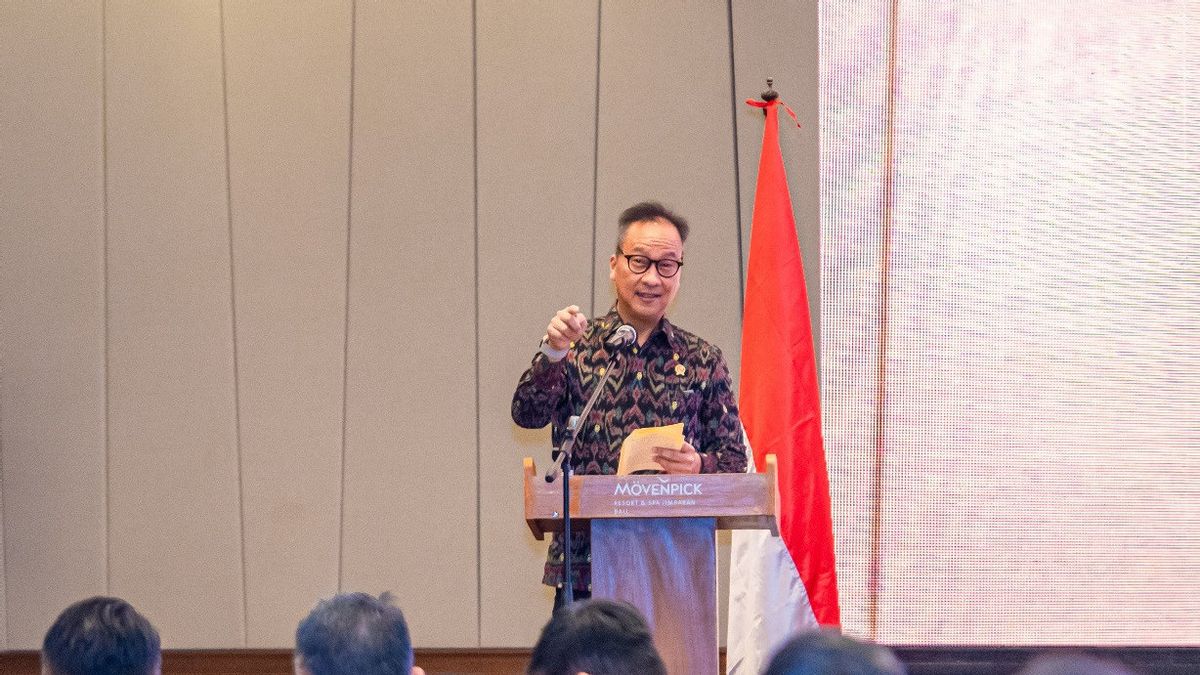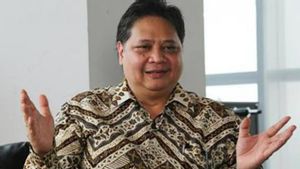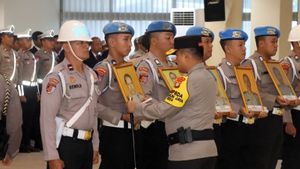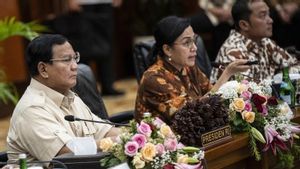Minister of Industry (Menperin) Agus Gumiwang Kartasasmita assessed that industrial estates need to transform into fourth-generation industrial areas or Smart Eco Industrial Park, which prioritize sustainable development, circular economy and green industry combined with the application of technology.
This was revealed by Minister of Industry Agus when closing the Business Forum in the framework of the XXIII National Working Meeting for the Industrial Estate Association in Bali, on Thursday, September 21.
"We hope that all industrial areas, especially members of the HKI, can slowly transform towards Smart Eco Industrial Park in order to be able to improve competitiveness and increase investment in the industrial sector," he said in a written statement, Saturday, September 23.
Industrial Estates are one of the strategic industries that play an important role in economic development and better national industrial growth.
However, the development of industrial estates, both new and existing, still faces many challenges, so breakthroughs and synergies are needed to be able to solve problems in industrial areas and increase their competitiveness.
Global issues related to the implementation of green and sustainable industries also require the industrial sector to be able to align its growth with environmental sustainability and social progress.
The Ministry of Industry has collaborated with the United Nations Industrial Development Organization (UNIDO) and the State Secretariat for Economic Affairs (SECO) Switzerland to implement the Global Eco Industrial Park Program (GEIPP) since July 2020.
Currently, there are three industrial areas that are the Pilot Projects of GEIPP, namely the MM 2100 industrial area, the Batamindo industrial area, and the Karawang International Industrial City (KIIC).
In addition, the Ministry of Industry, supported by Ecosian from South Korea, which is engaged in the green industry, is also initiating the implementation of industrial symbiosis in the form of utilizing steam left over from production at Krakatau Industrial Estate Cilegon (KIEC) in Cilegon City, Banten.
Minister of Industry Agus also conveyed the steps that can be taken by HKI and industrial estate companies to further increase industrial competitiveness.
First, by using byproduct as industrial raw material. This step is an implementation of the circular economy through reducing emissions that support the Net Zero Emission 2060 target, as well as reducing import substitution.
Second, carry out the zoning concept of industrial estates to create high competitiveness for their products. This step can bring the supply chain closer to an industry in one area.
Furthermore, the Ministry of Industry is also carrying out inspections in the context of controlling air pollution, especially in the industrial sphere.
"We ask for help from industrial estate companies to provide equipment or technology that can measure emissions in their respective areas and maintain emission thresholds in the region," he concluded.
The English, Chinese, Japanese, Arabic, and French versions are automatically generated by the AI. So there may still be inaccuracies in translating, please always see Indonesian as our main language. (system supported by DigitalSiber.id)













